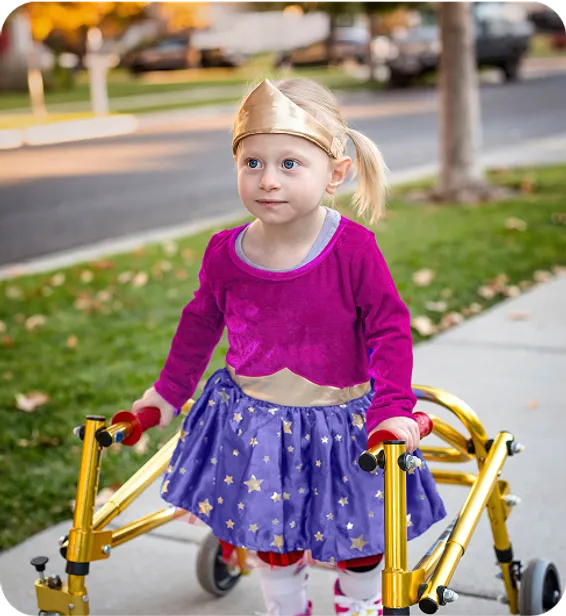

Hope for children with early-onset SCN2A or SCN8A Developmental and Epileptic Encephalopathies (DEE)
The EMBOLD study is investigating a new potential treatment for children with early-onset SCN2A or SCN8A DEEs.
About the EMBOLD Study

Purpose
To understand how safe and effective relutrigine is in reducing seizures

Duration
Up to 22 weeks in the initial study, with the opportunity to continue to stay on treatment for an additional 48 weeks in an open-label extension

At home
United States, Israel, Europe, United Kingdom
Choose where you participate in the study; whether at-home, in-clinic, or a combination of the two

About Relutrigine
Relutrigine is an investigational medicine that can be taken orally or administered through a G/J tube. Relutrigine is designed to regulate sodium flow in brain cells by targeting overactive sodium channels that cause seizures; therefore, potentially offering better seizure control with fewer side effects. Relutrigine has been designed to maximize its effects against overactive sodium channels that are believed to cause seizure activity while minimizing the blocking of normal activity needed for healthy brain function.
Topline data from the first part of EMBOLD study in SCN2A and SCN8A DEE
Children taking the study medication had nearly half as many seizures compared with those not taking it
About 1 in 3 children became completely free of seizures while taking the medication
Many children showed better alertness, communication, and less severe seizures
Children who continued taking the medication for an extended period had even fewer seizures; about 9 out of 10 seizures were prevented
Based on these encouraging results, the next phase of the EMBOLD study for children with SCN2A and SCN8A DEEs has begun

Your loved one may be able to participate if they
-
 Are 1 through 18 years old
Are 1 through 18 years old -
 Have received a diagnosis of
Have received a diagnosis of - • SCN2A gene mutation with onset of seizures in the first 3 months of life; or
- • SCN8A gene mutation with seizures
-
 Have at least 8 motor seizures (seizures that involve movement) in the 4 weeks prior to screening
Have at least 8 motor seizures (seizures that involve movement) in the 4 weeks prior to screening
Why participate?
-
 The flexibility to participate at-home, in-clinic at a study site, or a combination of both
The flexibility to participate at-home, in-clinic at a study site, or a combination of both -
 If your family chooses to attend in-clinic study visits, all expenses for travel, lodging, meals, and any other costs associated with study participation will be paid for by the sponsor
If your family chooses to attend in-clinic study visits, all expenses for travel, lodging, meals, and any other costs associated with study participation will be paid for by the sponsor -
 All participants will receive relutrigine during the study at some point
All participants will receive relutrigine during the study at some point -
 Option to continue to stay on relutrigine for an additional 48 weeks after the initial study is completed
Option to continue to stay on relutrigine for an additional 48 weeks after the initial study is completed -
 Your loved one may be able to continue on relutrigine after the completion of trial participation through an expanded access program if he/she showed clear benefits beyond previous therapeutic treatments
Your loved one may be able to continue on relutrigine after the completion of trial participation through an expanded access program if he/she showed clear benefits beyond previous therapeutic treatments
